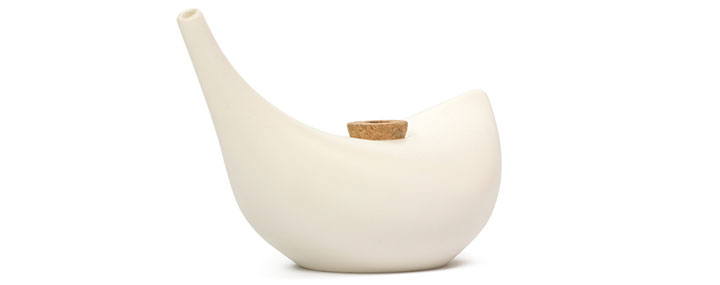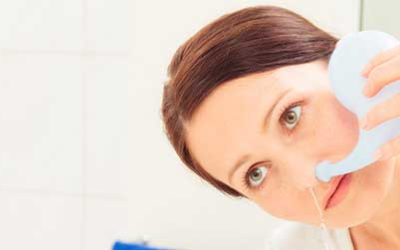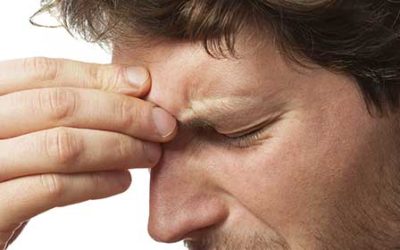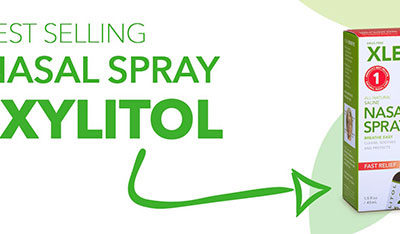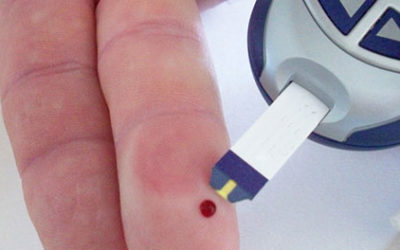Are there dangers of neti pots?
Neti pots are a great resource for clearing your sinuses. However, it’s really important to use one properly. In fact, in 2011, two separate incidents of death occurred because of neti pots. The fatal mistake? Rinsing out their nasal passages with the wrong solution.
It’s important to use tap water that has been treated by your local water department in your neti pot. In the case of the two deaths, they used surface well water, which had been contaminated with the lethal microbe Naegleria fowleri, which is a brain eating amoeba with a 98 percent mortality rate.
While tap water is usually safe for use, commercially available saline solution is actually safer. Safer and better is a saline and xylitol solution. Saline and xylitol solutions help to remove the debris and cleanse the nasal passages, all while moisturizing.
Neti pots are best used when suffering from sinus congestion, but aren’t recommended for daily use. Daily use runs into the same problem that doctors found many years ago with the then common practice of douching. What they found was that this practice removed the protective, friendly bacteria, which actually produce antibiotic substances that kill pathogens in the vagina. Friendly bacteria also populate the nasal passages and similarly produce some antibiotic substances, and the body has its own version of these defensins, which happen to be salt sensitive–so they don’t work when saline is present. Frequent irrigation, like douching, removes these beneficial defenses, which results in recurrent rhinosinusitis.” A far better solution is tweaking your nasal environment on a regular basis with a xylitol and saline nasal spray.
The solution to any neti pot problems is pretty easy. Simply use the neti pot when you are severely congested, and when a simple nasal spray doesn’t seem to be enough, and only use a solution that is meant for a neti pot, preferably a saline solution that contains xylitol.
It’s also important to make sure you properly clean your neti pot between each use. While you should be using a sterile solution in your neti pot, that doesn’t mean your neti pot itself is sterile. Remember to wash it between each use. Residual moisture left over in your neti pot can encourage the growth of bacteria. If your neti pot is dishwasher safe, simply throw it in for a rinse after every use and then fully dry the neti pot before putting it away. If it’s not dishwasher safe, wash it out with some hot water and a little plant-based dish soap, and again, dry it completely afterward.
Related Articles
Special Ed and ear infections? Why are they connected?
Ear...
Nasal Irrigation: Washing Away Your Ailments
Having functioning and healthy nasal and sinus passageways can make a world of difference in your daily life. People with allergies often feel wary of enjoying a beautiful day outside because being exposed to allergens such as pollen, dust, and...
Understanding Sinusitis
What is Sinusitis? Sinusitis is caused by the tissue lining of the sinus cavity becoming swollen or irritated. There are six sinus cavities that connect to the nasal passages and when healthy, they are filled with air. If viruses, fungi, or bacteria get...
The Nose is a Nidus: A Source of Infection for Ears, Sinuses, and Lungs
What's a nidus? A nidus is defined as “a place in which bacteria have multiplied or may multiply; a focus of infection”. The way it is now the nose is a nidus–virtually all upper respiratory problems, both allergenic and infectious begin in the...
Xylitol Nasal Spray Recipe – What’s In Xlear?
Xlear's xylitol nasal spray recipe only contains four simple ingredients. Xlear, Inc. is one of our major partners and their namesake nose wash is a worldwide favorite being sold in South Africa, the EU, Australia, Turkey, Kuwait, Saudi Arabia,...
Natural Sugar Substitutes for Diabetics and Prediabetics
With so many options available, what’s the best natural sugar substitutes for diabetes? Unfortunately, the number of people with diabetes continues to rise. In fact, according to the United States Centers for Disease Control and Prevention, or...

